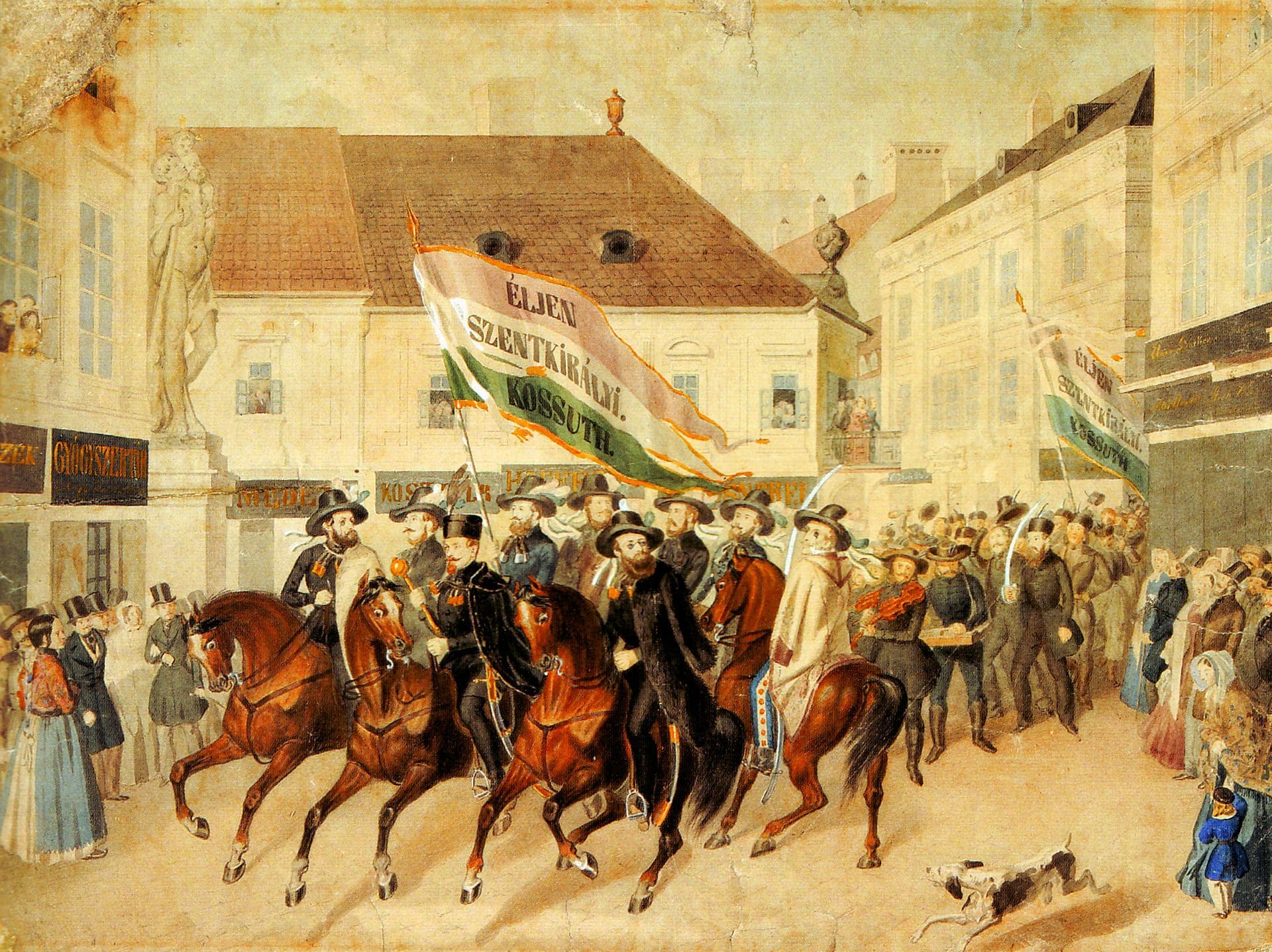Against all the odds and the largest-ever effort to overturn Prime Minister Viktor Orbán, the governing Fidesz Party retained its supermajority in a landslide victory, securing a fourth consecutive term as voters chose stability over uncertainty.
Prime Minister Orbán won his fourth consecutive term in a landslide victory last month—his party not only keeping the government but their two-thirds supermajority as well, nearly replicating their 2010 record numbers. Hungary has once again turned orange as Fidesz won almost all constituencies in the countryside, while Budapest (as widely expected) was taken by the united opposition. Now, as the initial shock of the aftermath has started to fade, we should take a look at some of the most important lessons and challenges this election has presented, not only to Hungary, but also to Europe and the West as a whole.
First, however, the facts. In this election cycle, Orbán faced his greatest challenge in at least the last twelve years, mostly due to the unusual formation in which his challengers ran. The United for Hungary alliance emerged as the single-list platform of six different opposition parties (an unholy union of right-wingers, liberals, socialists, and progressives) leaving only the far-right Mi Hazánk (Our Homeland) and the joke party Two-Tailed Dog (MKKP) to compete individually against Fidesz. Nobody really gave much thought to how such a colourful six-party coalition would govern once elected, and nobody really wanted to discuss that either. The only thing that kept the broad opposition coalition members together was their shared hatred of Orbán, so their only real programme was defeating him at the ballots.
Traditionally, the Hungarian left’s narratives are often conceived in an environment of ignorant urban privilege
Despite the frequent—and anticipated— internal conflicts that plagued the opposition alliance during the campaign period (such as heated arguments about the character of the leader, the allocation of seats between the participating parties, and general clashes between their views and priorities regarding future governance) which, to be honest, did not paint a strikingly competent picture of the group, United for Hungary did seem to act like the election was already in the bag. Traditionally, the Hungarian left’s narratives are often conceived in an environment of ignorant urban privilege, and its adherents do not even try to understand the mindset and everyday problems of the vast majority of Hungarians. This was certainly the case this time as well—with the sole exception of Jobbik, perhaps, but even their address to rural Hungary felt forced and condescending at times. The alliance as a whole, however, seemed to aim their campaign messages toward the capital only, with an ill-conceived, arrogant assumption that everyone who is not a committed Fidesz supporter would vote for them in any case.
Nonetheless, the opposition’s seemingly failsafe plan brought disaster upon them. The parties that made up United for Hungary (UfH) not only failed at the one thing they set out to do, but also lost five previously held seats in the unicameral National Assembly that consists of 199 MPs. They gained only 57 seats, and won less than 35 per cent of the votes. By contrast, Fidesz has managed to expand its supermajority by two, bringing its total seats to 135. Surprisingly enough, after obtaining six seats with just under 6 per cent of the votes, the far-right Mi Hazánk also entered Parliament for the first time, further increasing the now heavily right-wing composition of the legislative branch.1 These results leave absolutely no room for doubt: Hungary has overwhelmingly shown approval of the past twelve years of Fidesz and Viktor Orbán, and in doing so, has chosen a clear path for the next four years as well, despite all the internal and external voices trying to persuade us to believe otherwise.
Now, unsurprisingly enough, the main reason for the opposition’s spectacular defeat is their newfound strategy of running as a single party—combined with the dreadful geopolitical atmosphere Russia has created. Compared to this year, the parties that made up UfH gained almost 900,000 more votes between them just four years ago,2 a staggering difference which has now strengthened both Fidesz and Mi Hazánk, but mainly the latter. While most analysts did expect voters to somewhat punish the parties within the alliance for combining forces, no one would have guessed the extent of the punishment.
The biggest loser was probably Jobbik, which was not only the largest party inside this ‘rainbow’ coalition, but also the only right-wing one—both factors of which must have contributed to the disillusionment of hundreds of thousands of its supporters when their party announced its alliance with the left.
Jobbik’s fall from grace, of course, did not begin yesterday. This election was rather just the final nail in their coffin. The formerly extreme-right party has massively reformed itself in the last couple of years, but as they strolled down the road towards mainstream respectability, they cluelessly ended up too close to the Hungarian left. Those party officials who opposed the move quit, creating Mi Hazánk, which caused the remnants of Jobbik to keep straying more and more towards the left. Eventually, Jobbik lost their position as the sole conservative opposition force for the sake of the promising leftist scheme and joined the post-communist establishment, clearly not to their base’s liking, as the painful lesson it has been taught in this election shows.
But Jobbik’s apparent lack of authenticity is not the sole reason Mi Hazánk entered Parliament. The party’s main campaign message may also have played an important part, as they were the only established political force to build their platform on vaccine hesitancy and the right to decide. Opposing vaccine mandates and over-the-top restrictions made them well known and spectacularly more popular during the pandemic, so Mi Hazánk, rather cleverly, decided to make the issue a centrepiece of their campaign, no doubt winning over several Fidesz and left-wing voters as well. Had the government not scrapped nearly all COVID- related restrictions a month ago, I believe Mi Hazánk would have gained significantly more votes than it ultimately did, but nonetheless, their presence in Parliament will continuously remind the new Fidesz government to tread carefully around restrictions should new COVID-waves hit Hungary.
Of course, the decision to incorporate Jobbik is not the only reason UfH did not fulfil its expectations. After all, without the largest opposition party, the alliance would not have stood a chance, so the fault does not lie with the left for joining a right-wing party as such, but with them gravely underestimating the effect this union would have on Jobbik voters. And apart from this, all the other coalition members had ample opportunity to attest to their incompetence—including UfH’s candidate for prime minister, Péter Márki-Zay, who won the opposition primariesprecisely because he ran without a party. Last year’s overly dramatic fight between the socialists, liberals, progressives, and greens for primacy within their unified platform practically ensured the victory of Márki-Zay as an anti-establishment, centrist figure, but that, of course, did not save him from making embarrassing blunders every other day once the official campaign started.
All these contradictions were overshadowed by the dozens of times he insulted certain demographics for no apparent reason
From the very beginning, Márki-Zay’s media appearances teemed with contradictions; he seemed not only to be completely out of touch with the official positions of UfH on a number of issues but did not even remember his own statements from just days before. For instance, at one point he advocated for the abolition of the minimum wage, then promptly went on to deny ever talking about it while promising the country that he would substantially raise it once he took office. Márki-Zay also managed to pull the same trick in regards to other issues as well, such as the privatization of healthcare, the price of public utilities, and even the war in Ukraine (simultaneously accusing the government of sending and not sending weapons to Kyiv).3 But all these contradictions were overshadowed by the dozens of times he insulted certain demographics for no apparent reason. To mention just a few, Márki- Zay blatantly questioned the intelligence of women, the elderly, voters in rural areas, and generally everyone who would dare to vote for Fidesz, on a regular basis. What is more, he openly endorsed known anti-Semites as candidates for members of parliament, nonchalantly told tasteless racist jokes, and even said that his coalition was home to the full political spectrum, including both communists and fascists. The result of these comments was just as expected. His popularity plunged lower and lower after each new interview.4
It need hardly be said, another factor that heavily affected the united opposition’s chances, as mentioned before, was the Russia–Ukraine War. There is no need to explain why that would have mattered so much; in times of great peril (as many people feel right now on the eastern flank of NATO), voters are less likely to place their trust in an unproven and predictably unviable coalition of so many opposing forces and ideologies over the experience and stability that only Fidesz can offer. Furthermore, while the idea of strongly supporting Ukraine was shared by both Fidesz and the UfH, remarks by the latter repeatedly made it seem that the opposition would be willing to put Hungary at far greater risk for Kyiv’s sake, which certainly made their approach less appealing.5
It is also precisely because of the war that conservatives in Hungary cannot afford to celebrate for too long: the greatest challenges the Fidesz government has to face are lining up on the horizon. The military instability brought about by war in our neighbourhood is just the start. A global financial crisis is also looming, along with supply-chain disruptions, and food and energy shortages. Managing the economic fallout will not be any government’s dream job and will most certainly provide a lot of opportunities for the opposition to attack Fidesz. Nonetheless, the ruling party’s strengthened position in Parliament will be helpful while they try to navigate us out of these hardships. The elections have proved that Hungarians trust Fidesz to lead us to a safe harbour more than any of the alternatives.
Another challenge Fidesz will inevitably face in the near future will be to prepare a contingency plan for 2026 and beyond. At this point, the party’s brand is inseparable from its highly charismatic leader, but there will come a time when Orbán will have to step down and enjoy a well-deserved retirement. Such a strong political force as Fidesz cannot afford internal conflicts during that time, so it will have to start shaping and presenting the next generation of leaders now—similarly, perhaps, to how it approached the question of choosing a new Hungarian president earlier this year.
Fidesz stands a good chance of remaining the most influential political entity for decades to come, so it must start preparing for it
With a largely ceremonial, yet also complex and highly symbolic title, the president of the republic is second only to the prime minister in the important role of representing Hungary in both foreign and domestic matters. With János Áder’s term over, Fidesz appointed a young female politician, former Minister for Family Affairs Katalin Novák as his replacement. Novák—along with a number of other officials—could represent the beginning of a most-welcome tendency within Fidesz: an internal renewal with the introduction of a promising young generation to top government positions, which can ensure the continuation of the strikingly successful history of the party even in the post-Orbán era. With such a deep foundation laid—after four consecutive terms and the consolidation of nearly all conservative forces within the country—Fidesz stands a good chance of remaining the most influential political entity for decades to come, so it must start preparing for it (or risk losing its charm like the CDU did shortly after the departure of Merkel). However, Fidesz has also proved on numerous occasions that it is capable of learning the lessons of others, so I am confident we will increasingly see signs of these preparations in the coming years.
For now, we can say that nothing has really changed in Hungary. Ironically enough, it seems that the louder the international left fights for Hungarian ‘democracy’, the stronger the Fidesz governments the democracy in question elects. Democracy is about freedom of choice, and Hungary has chosen the side of Christian conservatism over and over, so it is perhaps high time for everyone to accept that. Maybe the time has come to drop the hate and learn to build bridges instead, because Fidesz is here to stay for at least another term—and far longer in the form of its enduring legacy.
NOTES
1 ‘Országgyűlési képviselők választása 2022’ (Parliamentary Elections 2022), National Election Office (16 April 2022), https://vtr.valasztas.hu/ ogy2022, accessed 11 May 2022.
2 Péter Magyari, ‘Eltűnt 850 ezer szavazó a hat párt mögül’ (850,000 Votes Lost by the Six Parties), 444
(4 April 2022), https://444.hu/2022/04/04/eltunt-850- ezer-szavazo-a-hat-part-mogul, accessed 11 May 2022.
3 ‘Mutatjuk, hogyan beszél folyamatosan összevissza Márki-Zay Péter’ (We Show You How Péter Márki-Zay Continuously Contradicts Himself), Origo (25 March 2022), www.origo.hu/itthon/20220324-mrki-zay- peter-mindenrol-ossze-vissza-beszel.html, accessed 11 May 2022.
4 ‘Nők, idős emberek, vidékiek vagy fogyatékosok: Márki-Zay Péter már mindenkit vérig sértett’ (Women, the Elderly, the Rurals, or the Handicapped: Péter Márki-Zay Insults Everyone), Origo (28 March 2022), www.origo.hu/itthon/20220327-marki- zay-peter-mar-mindenkit-verig-sertett.html, accessed 11 May 2022.
5 ‘Ezt nyilatkozta eddig Márki-Zay Péter a fegyverszállításokról’ (This Is What Péter Márki-Zay Has Said So Far about Weapon Transfers), Mandiner (18 March 2022), https://mandiner.hu/cikk/20220318_ marki_zay_peter_fegyverszallitas_katonak_orosz_ ukran_haboru_baloldal, accessed 11 May 2022.








